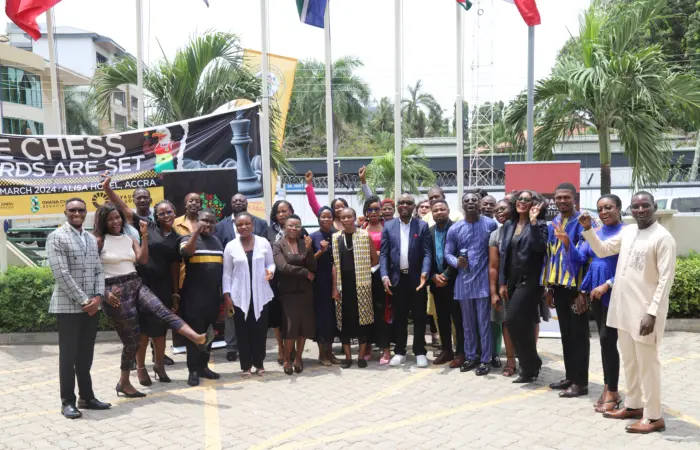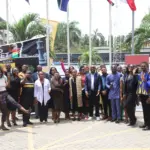As the Independent National Electoral Commission prepares for its first major election since the 2019 general elections, the issues that plagued the February and March General elections may rare its head again if not properly addressed. The Bayelsa and Kogi Governorship elections are a little over 2 months away, yet, the signs witnessed before the 2019 elections took place are obvious now again, and may affect the credibility of the November polls.
In a recent report, YIAGA AFRICA said one of the major issues that beleaguered the 2019 elections is undemocratic political party primaries and commercialized candidate nomination process. It is no more news that Political parties deliberately flouted their guidelines, constitutions, and Independent National Electoral Commission (INEC) guidelines on party primaries as well as the Electoral Act. The party primaries during the 2019 General elections were marked by financial inducement and horse-trading. There was also reported inducement of delegates with local and foreign currencies during direct and indirect primaries and deliberate substitution of candidates who won in primaries with supposed “anointed choices” of party leaders. The current situation in Bayelsa and Kogi may just be pointing to a similar direction as report has it that delegates were induced in cash and mobile money transfers amidst controversies and unrest that beclouded some party primaries in both states.
Beyond Political party primaries, INEC needs to take actions on critical issues after a lot recommendation by election observers followed the 2019 elections. For instance, YIAGA AFRICA noted some lapses in the design, communication and lack of uniformity in the implementation of the guidelines issued by the electoral commission. One major technical issue that affected the 2019 elections and may be rearing its head again is the fact, there was no clarity on who reserves the authority to cancel ballots and the levels where cancellation will take place. This led to collation officers exercising excessive discretionary powers in cancelling results and declared winners where the total number of registered voters in cancelled polling units had the potential of affecting the margin of lead between candidates in flagrant violation of Section 26 and 53 of the 2010 Electoral Act as amended.
As a result of this arbitral cancellation, there has been increase in the percentage of polling units where elections were cancelled, as political parties seem to have deployed this stratagem against opposition strongholds. Overall, the percentage of cancelled ballots announced by INEC was 3.3% of all registered voters according to YIAGA AFRICA report. This is four times higher than the rate from 2015 when registered voters in cancelled polling units was less than 1% of all registered votes. As a matter of exigency and even as it plans for the Governorship elections in Bayelsa and Kogi, INEC needs to undertake a public investigation into the cancelation of ballots and to take appropriate legal actions should it be discovered that any INEC staff or collation officer cancelled ballots with intent to affect the election outcome.
Disruption of election process may not be connected to issues relating with lack of adequate security. The seemingly non-existent of security in Nigeria’s election has become a worrisome trend that there is hardly any major election that doesn’t affect the lives of innocent people. Again, this cannot be overemphasized with poor security being the major reason for disruption of the process and consistent voter intimidation and assault against unsuspecting individuals, press and civil society during elections. Thus, in a bid to set a good precedent, security agencies should as a matter of urgency commence investigation and prosecution of electoral offenders especially for the violent disruption of the electoral process which led to the death of some citizens. It can also not be overstated that security agencies must collaborate with the electoral commission and citizen observers to eradicate undue breakdown of law and order.
Ahead of the Bayelsa and Kogi elections, it is expected that the commission is currently conducting a comprehensive post-election review of the 2019 electoral timeline to identify gaps in its preparations and to clearly communicate with the public plans to address the structural issues that have resulted in three successive national elections marred by logistics challenges. Similarly, there is still enough time to review the Legal framework for Elections, which includes further review of the electoral guidelines regulating the cancellation of votes at polling units.
Both Domestic and International observer missions amongst other Civil Society Organisations also have roles to play to stifle electoral offenders. Civil Societies like YIAGA AFRICA have also endorsed sanctions on individuals and institutions that undermine Nigeria’s democracy and instigate electoral violence while urging other foreign missions to adopt this mechanism of accountability and make public the list of individuals placed on ban. Thus ahead of the Bayelsa and Kogi Governorship elections, its apparently time to point accusing fingers to any individual or group that play any role either covertly or overtly in truncating Nigeria’s democratic growth.
Moshood Isah
Media Officer, YIAGA AFRICA.
Tweets @moshoodpm




